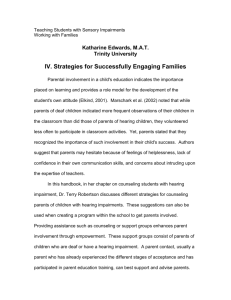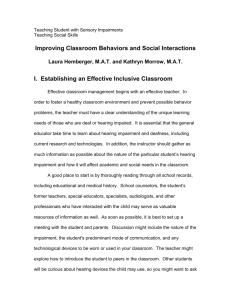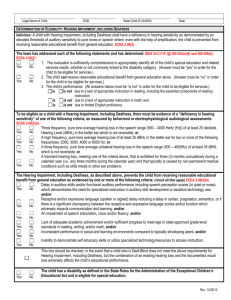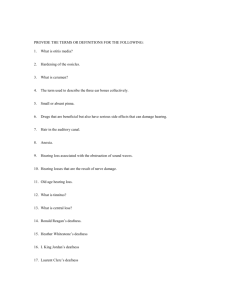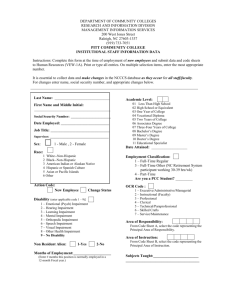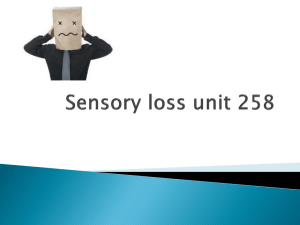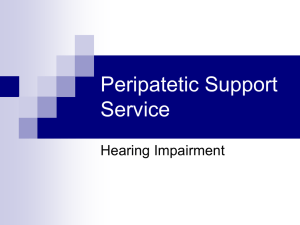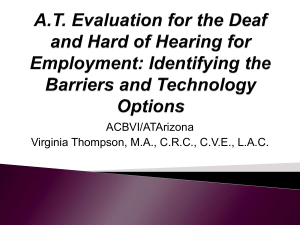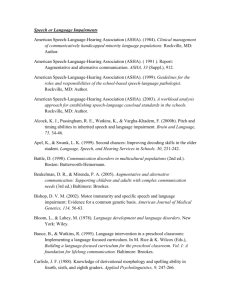Prelim Proj Proposal
advertisement
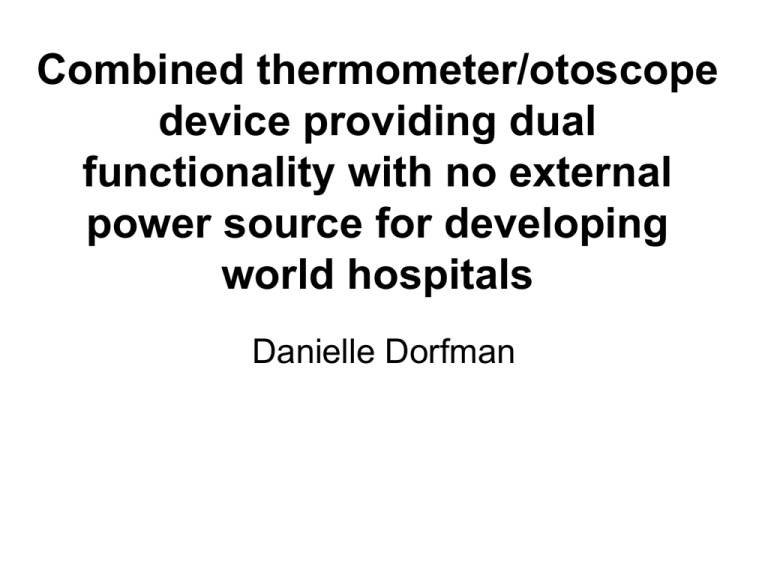
Combined thermometer/otoscope device providing dual functionality with no external power source for developing world hospitals Danielle Dorfman Deafness in the Developing World Hearing impairment refers to complete or partial loss of the ability to hear from one or both ears. The level of impairment can be mild, moderate, severe or profound. There are two types of hearing impairment, defined according to where the problem occurs: Conductive hearing impairment and sensorineural hearing impairment. Deafness in the Developing World: Statistics • According to 2005 estimates by the World Health Organization (WHO), 278 million people worldwide have moderate to profound hearing loss in both ears. • 80% of deaf and hearing-impaired people live in low- and middle-income countries. • Chronic middle ear infection is the main cause of mild to moderate hearing impairment in children. • The impact of hearing impairment on a child's speech, language, education and social integration • 50% of deafness and hearing impairment is avoidable through prevention, early diagnosis, and management. Temperature Reading • A rise in temperature is one of the simplest indications that a patient may be sick. • Many hospitals still use mercury-based thermometers that can break, potentially causing an additional health hazard. • Liquid thermometers also require a longer time to read, which can delay diagnostics. Circuit Diagram Otoscope/LM35DT Combination Temperature Sensor – LM35 Series From the Data Sheet… Power Source and Casing • I am hoping to incorporate crank power into the design, but have not found a reliable crank power design • The outer shell of the device will enclose the circuit board and switch and will have a crank attached Possible Partnerships/Grants • • • • • Partners for a Greater Voice Global Deaf Connection Deaf Africa Association Quota International Deaf Child Worldwide

